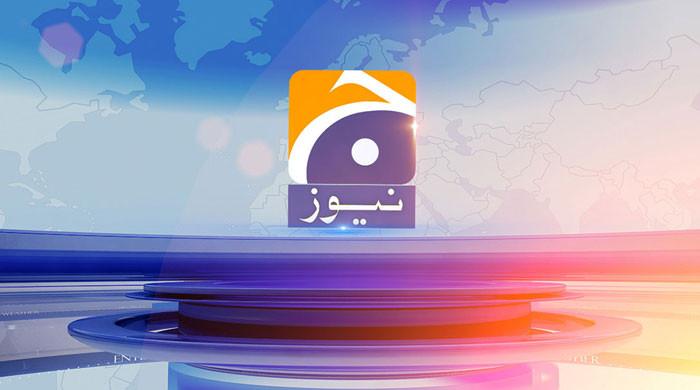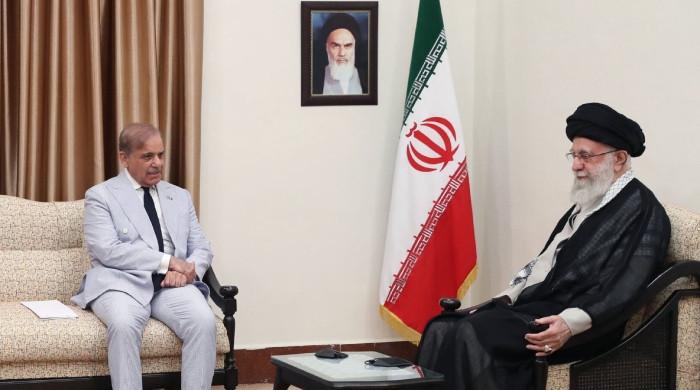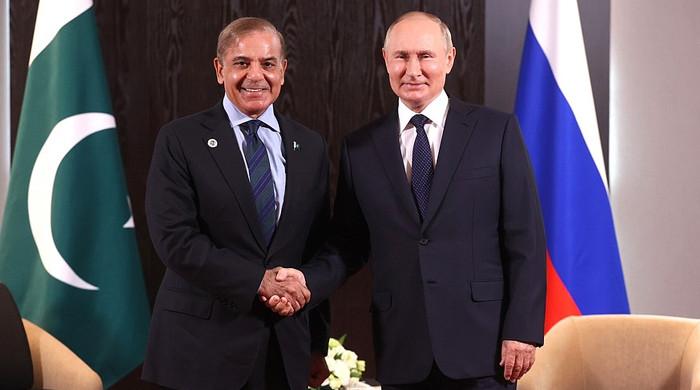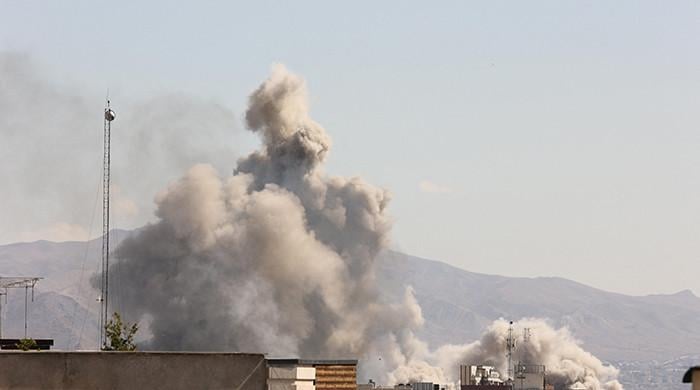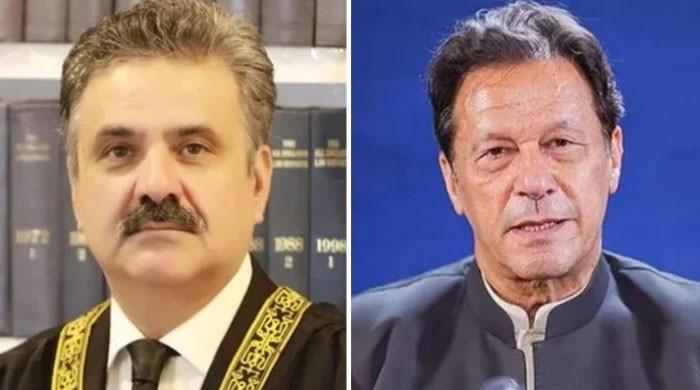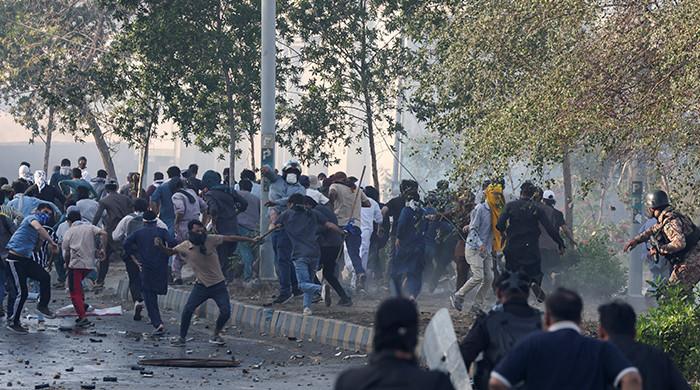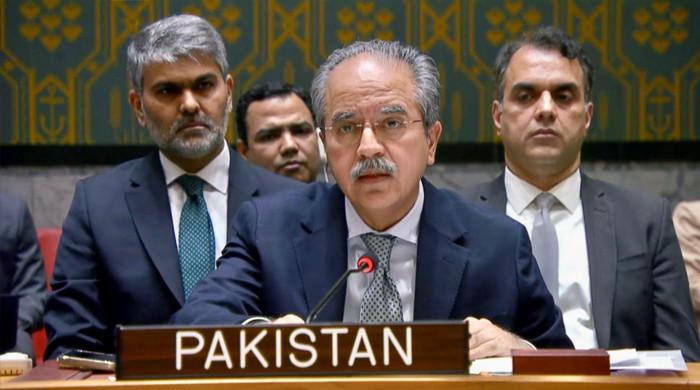NA passes ATA amendment, restores 90-day detention powers
JUI-F's separate amendment was rejected by lawmakers to send tweaks to Council of Islamic Ideology
August 13, 2025
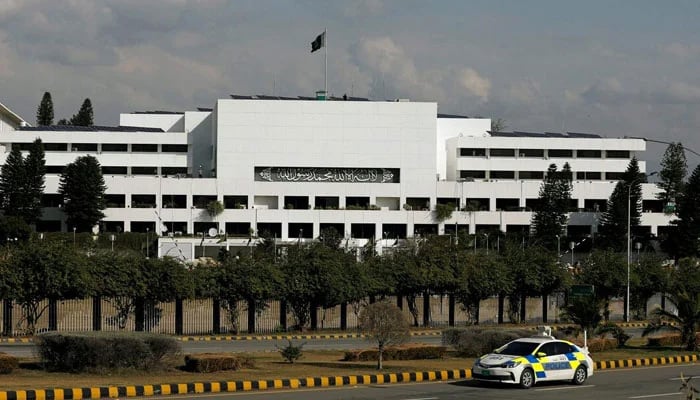
- Law empowers LEAs to detain suspects for up to 90 days
- Govt accepts PPP's suggested changes to anti-terror bill
- JUI-F stages walkout in protest after its amendment rejected.
ISLAMABAD: The National Assembly passed the Anti-Terrorism Act (Amendment) Bill with a majority vote on Tuesday, reviving the law to permit law enforcement agencies to detain a suspected individual for up to 90 days.
This law already exists, but it expires as it is subject to a sunset clause, which allows for the limited validity of a law.
The bill was moved by Minister of State for Interior Talal Chaudhry in today's session to further amend the Anti-terrorism Act, 1997 [The Anti-terrorism (Amendment) Bill, 2024].
Jamiat Ulema-e-Islam-Fazl (JUI-F) lawmaker Aliya Kamran moved a separate amendment, seeking to send the ATA amendment bill to the Council of Islamic Ideology (CII).
However, the amendment received support from only 41 members and was rejected by the majority of lawmakers, prompting JUI-F lawmakers to stage a walkout in protest.
Later, the House passed the bill via a clause-by-clause read.
Earlier, the lower house adopted the motion to consider the bill with 125 votes in its favour and 59 against it.
The statement of objects and reasons of the bill says that the current security situation requires a robust response that goes beyond the existing legal framework.
The erstwhile amendment of Section 11EEEE of the Act ibid, is required to be re-inserted to empower the government, Armed Forces and Civil Armed Forces with the necessary authority to detain individuals who pose a significant threat to national security.
This provision would allow for the preventative detention of suspects based on credible information or reasonable suspicion, thereby disrupting terrorist plots before they can be executed.
This will also provide LEAs with the legal backing to conduct more effective operations against terrorism.
It would facilitate the use of Joint Interrogation Teams (JITs), composed of members from various law enforcement and intelligence agencies, to conduct comprehensive inquiries and gather actionable intelligence.
The Pakistan People's Party (PPP) backed amendments proposed by the federal government in the ATA.
However, the opposition legislators strongly opposed the bill as JUI-F chief Maulana Fazlur Rehman, in his speech, called it "discriminatory law" besides questioning the government as to why it failed to eliminate terrorism in 25 years.
Moreover, Pakistan Tehreek-e-Insaf (PTI) Chairman Barrister Gohar Ali Khan termed the law a violation of fundamental clauses of the Constitution of Pakistan.
Federal Minister for Law and Justice Azam Nazeer Tarar backed the bill, saying that the government has the authority to legislate for public order and security, stressing that the law requires any arrested person to be presented before a court within 24 hours.
He noted that the Constitution allows preventive detention for up to 90 days and that judicial review mechanisms are in place. Tarar also remarked that PPP's Syed Naveed Qamar had suggested amendments that the government accepted.
Qamar also addressed the NA session in which he noted that legislation is framed in light of prevailing national circumstances, but cautioned against misuse, warning that no one should be detained merely because of personal dislike.
He said certain provisions had been removed from the bill and action would only be taken where evidence of terrorism exists to help stabilise the situation in affected areas.
The National Assembly also passed two more bills including the National School of Public Policy (Amendment) Bill, 2025 and the Petroleum (Amendment) Bill, 2025 as reported by the Standing committees concerned.
The bills were moved by Minister for Parliamentary Affairs Dr Tariq Fazal Chaudhary and Minister for Petroleum Ali Pervaiz in the House, respectively.
— With additional input from APP




